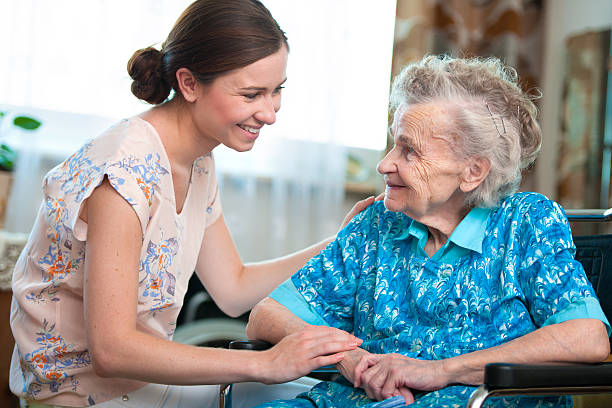Assisted living communities provide a safe and supportive environment for seniors. The caregivers who dedicate their time and energy to ensuring residents receive the highest quality of care are central to their success.
These compassionate individuals offer medical and physical assistance, emotional support, and companionship, enhancing the overall well-being of those they serve. Understanding the vital role of caregivers helps us appreciate their contributions and highlights the importance of investing in their training and development.
The Diverse Responsibilities of Caregivers

Medical and Physical Assistance
Caregivers in assisted living communities are often responsible for various medical and physical tasks. These include administering medications, monitoring vital signs, and assisting with daily activities such as bathing, dressing, and mobility. By addressing these essential needs, caregivers ensure that residents maintain their health and independence to the greatest extent possible.
Emotional Support and Companionship
Beyond their physical responsibilities, caregivers also play a crucial role in offering emotional support and companionship to residents. Many individuals in assisted living communities face loneliness and isolation, and the compassion and empathy of caregivers can significantly improve their mental health. Regular interaction, conversation, and shared activities help foster a sense of belonging and improve residents’ overall quality of life.
Enhancing Quality of Life Through Engagement
Caregivers actively engage residents in various activities that stimulate their minds and bodies. From organizing social events to encouraging participation in hobbies and physical exercise, caregivers contribute to a vibrant and dynamic community. This engagement is crucial for maintaining cognitive function, preventing depression, and promoting a positive and active lifestyle among residents.
Continuous Training and Development
Caregivers must continuously update their skills and knowledge to provide the highest quality of care. Regular training sessions cover topics such as first aid, dementia care, and communication techniques, ensuring that caregivers are well-prepared to address residents’ evolving needs. Investing in caregiver development underscores their importance and enhances the overall effectiveness of assisted living communities.
Challenges Faced by Caregivers
Physical and Emotional Demands
Caregivers often work long hours and are on their feet for much of the day, which can lead to physical fatigue and exhaustion. The physical demands of lifting, moving, and assisting residents with mobility can also strain the body over time. Additionally, the emotional toll of providing constant care and dealing with residents’ health issues can lead to burnout and stress.
Balancing Caregiver-Resident Relationships
While emotional support and companionship are vital, caregivers must also maintain professional boundaries to avoid emotional overattachment, which can impact the quality of care. Striking a balance between being empathetic and maintaining professional detachment is a continual challenge for caregivers, as blurring these lines can lead to emotional fatigue and hinder caregivers’ ability to serve effectively.
Managing Diverse Needs
Each resident has unique needs and preferences, requiring caregivers to be adaptable and versatile. From dietary restrictions to specific medical conditions, managing the diverse needs of multiple residents demands exceptional organizational skills and attention to detail. Caregivers must tailor their approach to each resident, often adjusting care plans to accommodate changing conditions and personal preferences.
Communication Barriers
Effective communication is crucial in caregiving, but it can be challenging when working with residents who have cognitive impairments, hearing loss, or speech difficulties. Caregivers must develop strong communication techniques, such as nonverbal cues and patience, to ensure they understand and meet residents’ needs. Misunderstandings can lead to frustration and inadequate care, making clear communication essential.
Limited Resources
Assisted living communities may face constraints in terms of staffing, budget, and resources, which can place additional pressure on caregivers. Short-staffed facilities can result in increased workloads and reduced time available for each resident. Caregivers often have to work with limited supplies and equipment, making it more challenging to provide comprehensive care.
Legal and Ethical Considerations
Caregivers are responsible for adhering to strict legal and ethical standards to protect residents’ rights and dignity. This includes maintaining confidentiality, obtaining informed consent, and ensuring residents’ autonomy and independence are respected. Navigating these considerations requires a deep understanding of policies and a commitment to ethical practice, adding another layer of complexity to the caregiving role.
Conclusion
Caregivers are essential to the assisted living community, providing medical assistance emotional support, and enhancing residents’ overall quality of life. Their diverse responsibilities and challenges highlight the importance of investing in their training and development to ensure they can continue to provide exceptional care. Acknowledging and appreciating caregivers’ contributions is crucial in creating a supportive and thriving environment for both residents and caregivers alike.


Recent Comments